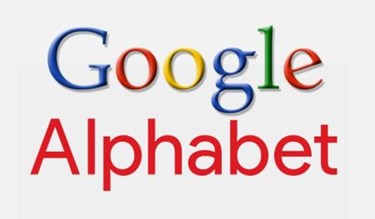Google's Transformation Into Alphabet Could Stimulate Med Tech
By Jof Enriquez,
Follow me on Twitter @jofenriq

The reorganization of Google into a collection of companies promises to elevate its health-centric "moonshot" projects into viable ventures that could disrupt the healthcare and medical technology industries.
As announced in a blog post, Google is restructuring into a holding company called Alphabet, under which Google will continue on as a subsidiary focusing on Internet and mobile-related services. Former Google businesses, which have made forays into health, will now operate as standalone companies under the new umbrella company.
"This newer Google is a bit slimmed down, with the companies that are pretty far afield of our main internet products contained in Alphabet instead. What do we mean by far afield? Good examples are our health efforts: Life Sciences (that works on the glucose-sensing contact lens), and Calico (focused on longevity). Fundamentally, we believe this allows us more management scale, as we can run things independently that aren’t very related," Larry Page, Alphabet CEO, wrote in the blog post.
Page adds that Alphabet will "rigorously handle capital allocation and work to make sure each business is executing well."
Financially, healthcare has become a stronger priority for the company. Google Ventures has quadrupled its investments in healthcare companies from 9 percent in 2012 and 2013, to 36 percent in 2014, according to Forbes. That investment is indicative of the company's interest in the multi-trillion-dollar healthcare industry, a relative holdout against technological disruption.
Perhaps more importantly, under Alphabet, former Google units now operating independently with their own management teams could pursue health projects more aggressively.
"It positions the tech company to expand into health care, which could be very healthy for its long-term fortunes," according to Forbes contributor Dan Diamond, who adds, "shifting from Google to Alphabet could catalyze a new wave of product development."
Specifically, medical device development has been a major focus for Google's former units, which were busy on ambitious projects well before the shake-up.
For instance, just one day after announcing the creation of Alphabet, the company announced that Life Sciences is partnering with diabetes device company Dexcom to develop miniaturized and disposable continuous glucose monitoring (CGM) sensors. It's the second notable partnership in diabetes management made by the Life Sciences team, the first being a collaboration with Novartis to make “smart” contact lenses that measure glucose levels in tears.
Life Sciences also is developing a wristband that can detect cancer using nanoparticles.
Google’s former experimental research and development department, Google X, will also become independent. It has been working on Baseline Study, a genetic and molecular mapping project of the human body. Google X developed the Google Glass eyewear, which one recent study demonstrated to be helpful in emergency rooms.
Calico, a company researching age-related diseases and potential therapies, is rumored to have funding equivalent to that of the National Institute on Aging's, which was around $1.2 billion in 2014, according to Modern Healthcare, although details are sparse on how exactly it would implement its ambitious plans.
A more recent project is Google's joint venture with Johnson & Johnson to develop a surgical robotics platform.
Google, with its huge resources and drive for innovation, has already shown its ability to create products with the potential to disrupt healthcare. By separating units into nimble, independent companies keenly interested in this field, its restructuring could add further momentum gain to medtech development.
